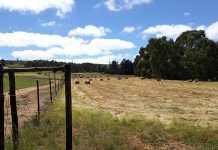Globally, farmers operate in highly subsidised and protected markets. There are many reasons for this. Agricultural production does not only depend on the production decisions of role players. There are long lags between a decision to increase or decrease production and the actual effect. Products are, in most cases, perishable and produced by many small businesses, while there is heavy concentration in up- and downstream industries.
In South Africa, regulated marketing was developed during and after the Great Depression of the 1930s, and survived until the early 1990s. Since then, agriculture in South Africa has become less regulated, less protected and farmers have learnt to survive with very little government support.
In most First World countries, government is responsible for the collection and dissemination of industry information. Before deregulation in SA, industry information was collected, collated and distributed by the marketing boards, working in co-operation with government.
In 1998, the new Marketing of Agricultural Produce Act came into effect and the boards were forced to close down. This largely put an end to the availability of industry information. Agricultural industries soon realised it’s impossible to collect market information on a voluntary basis, and various statutory measures were again put in place to enable organisations to collect information.
This worked quite well for a time.
Side effects
Then, in 1999, the Competition Act came into effect. Its purpose is to promote competition through improving efficiency, providing employment and ensuring the participation of small- and medium-size enterprises along with a greater spread of ownership by previously disadvantaged individuals – all very noble goals.
The act prohibits collusion between businesses on a horizontal and vertical basis, as well as the misuse of a dominant position by a company. Various firms have been prosecuted for contravening the act, and this has earned millions of rands for government.
While this has probably deterred uncompetitive behaviour, there have been various adverse side effects.
For one thing, the Competition Commission views the distribution of information with suspicion. It acknowledges that the exchange of market information may result in enhanced competition, but also emphasises this may limit competition. Confused? You’re not alone. The commission’s reasoning isn’t very clear here, to say the least. In fact, it’s the absence of information for all role players that opens the door for anti-competitive behaviour.
Severely hampered
Our competition legislation is probably based on similar legislation in developed countries and, in many cases, international competition case law is used as a guideline for SA situations. If we operated in markets similar to those in Western countries, this would make sense.
As noted, farmers in developed countries are protected against the effects of the free market system through various measures, largely subsidised by government. In South Africa, farmers have no protection, and our competition legislation prohibits joint actions by industry role players.
Thus, while governments in developed countries supply market information and intervene directly in markets to protect farmers, industry organisations who try to provide these services to their members in SA are severely hampered by competition legislation.
Fear of possible action by the Competition Commission is also frequently used as an excuse for not supplying information to industry organisations.
A process of negotiation between these organisations, facilitated by the National Agricultural Marketing Council with the co-operation of the Competition Commission, has made some progress in addressing the information issue. However, serious consideration should be given to whether the current act provides the correct structures to achieve its stated goals, especially given SA’s fairly unique agricultural environment.
Dr Koos Coetzee is an agricultural economist at the MPO. All opinions expressed are his own and don’t reflect MPO policy.
Contact him at [email protected]. Please state ‘Global farming’ in the subject line of your email.




